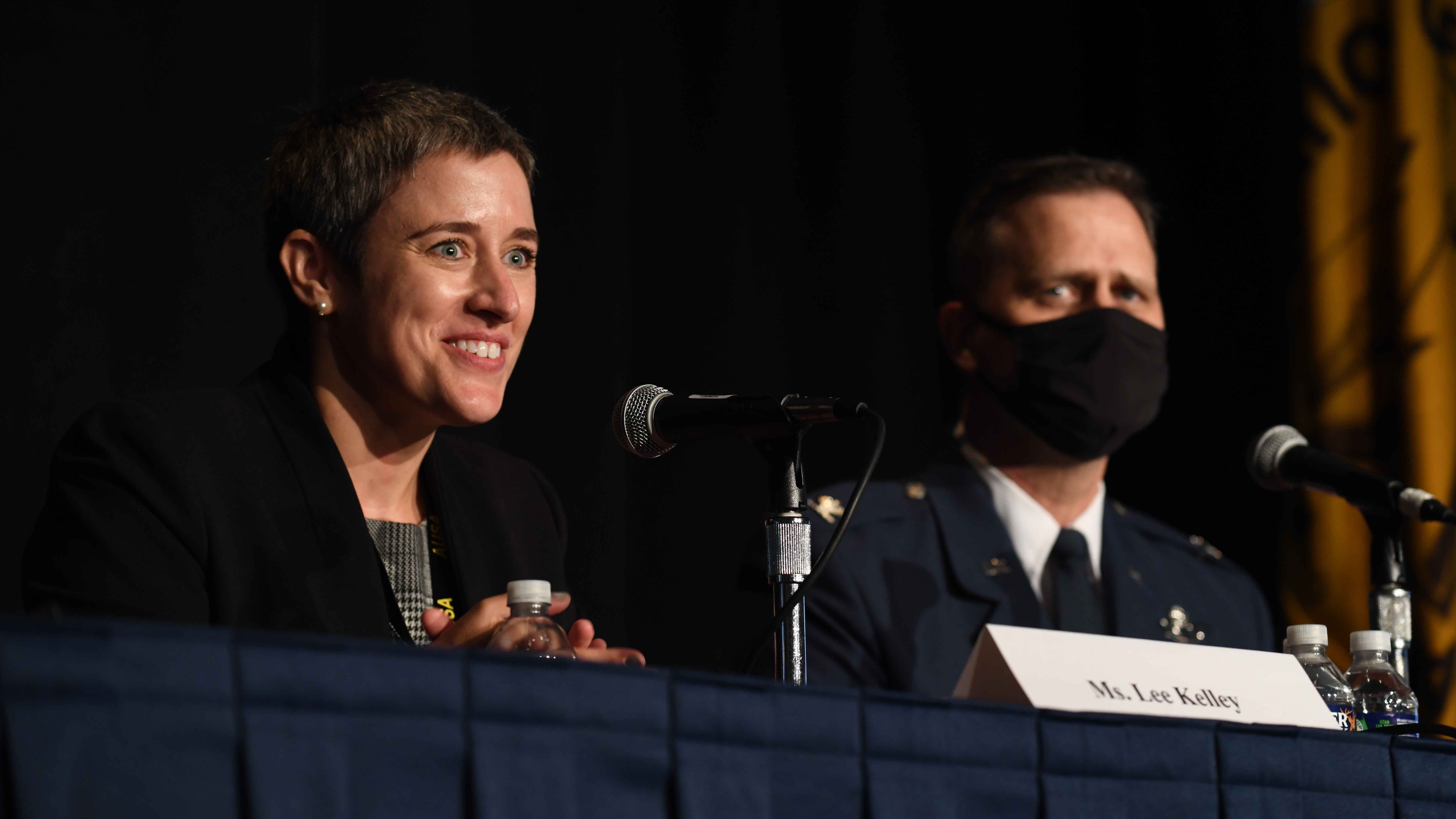Soldier, Family Quality of Life Remains Top Priority
Soldier, Family Quality of Life Remains Top Priority

After an unprecedented year, from the COVID-19 pandemic to wildfire response and more, the Army is continuing to adapt to ensure that soldiers and their families have access to the support and resources they need, according to a panel of experts.
The pandemic and several natural disasters “added to the mission,” said Dee Geise, director of the Soldier and Family Readiness Division. “We continue our focus on housing, health care, child care [and] spouse employment,” Geise said.
Speaking at a military family forum on quality-of-life issues at the Association of the U.S. Army’s 2021 Annual Meeting and Exposition, Geise and other experts talked about the challenges facing soldiers and their families.
During the pandemic, the Army significantly expanded its virtual health appointments, said Regina Julian, chief of the Healthcare Optimization Division at the Defense Health Agency. The effort helped the Army balance caring for patients with keeping medical teams safe.
“The end result of that is, out of the pandemic and continuing now, we were able to provide medically necessary care, which could not safely be delayed, while protecting both our patients and the staff,” Julian said.
Worried that some may be delaying care for chronic illnesses and key screenings, some in-person care has resumed.
“By the end of 2022, we want to have an industry standard at your fingertips,” Julian said. “We're going to use virtual health to integrate our entire system, direct care and private sector care globally, to meet patient demand, wherever it is.”
The need for child care also has been at the forefront of the Army’s work during the pandemic, said Helen Roadarmel, the Army’s chief of child, youth and schools services. In response, the Army and the other services have started an in-home child care provider pilot, which would grant fee assistance to military families for full-time in-home child care providers.
“The pilot is going to expand in the near future,” she said. “Currently there are 38 families who are interested in the program.”
Military OneSource experienced many calls related to mental health and marital issues during the pandemic, said Lee Kelley, director of Military Community Support Programs.
In particular, Kelley said, Military OneSource adapted to the mental health care needs of teens.
“Understanding that our military adolescents were at home and were struggling, we modified Military OneSource to provide non-medical counseling assistance for military youth age 13 to 18,” Kelley said. “It has to be in that family dynamic.”
— Karli Goldenberg

